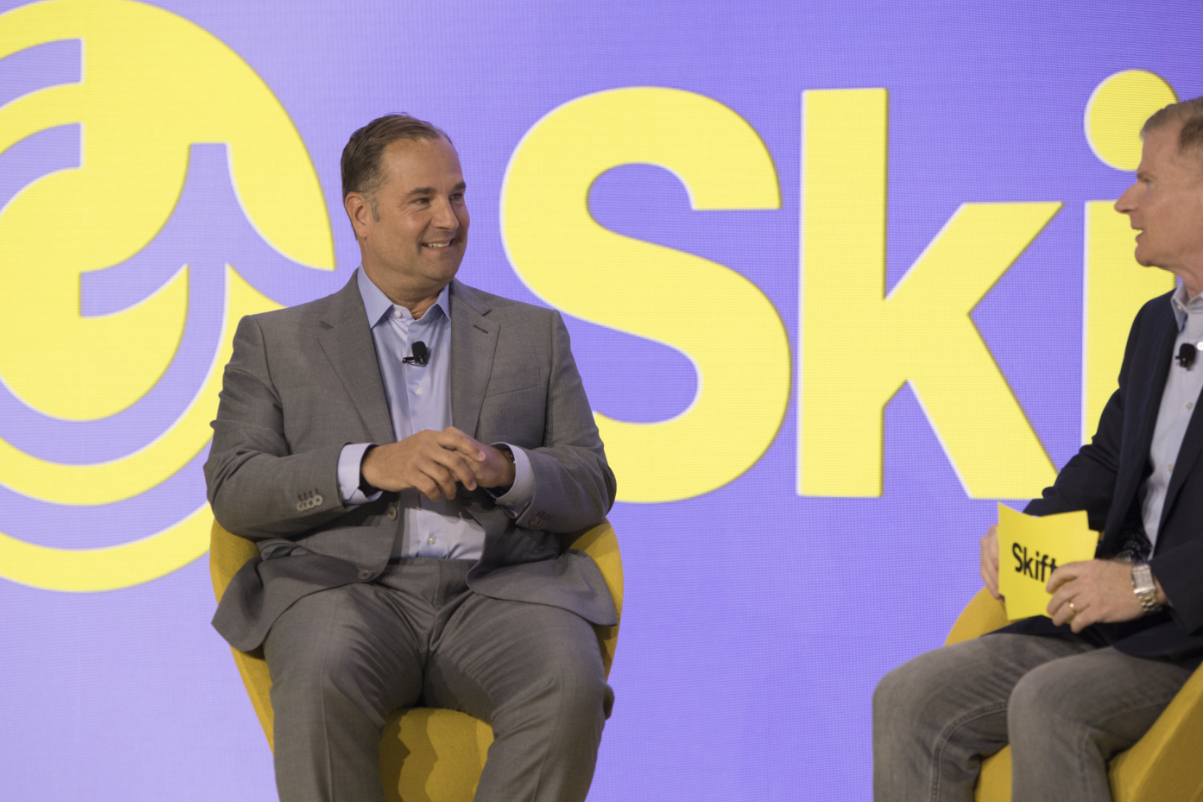U.S. Hotels Will Need More Than What’s in the $2 Trillion Relief Package: Industry Trade Group CEO

Skift Take
The $2 trillion U.S. economic relief package passed Friday to offset a coronavirus economic downturn is more of a lifeline than stimulus to the hotel industry, according to the CEO of one of the industry’s largest trade groups.
U.S. President Donald Trump signed the Coronavirus Aid, Relief, and Economic Security — or CARES — Act into law Friday. Many hotel operators qualify for some of the $500 billion in loans and loan guarantees the $2 trillion emergency spending package includes to businesses hit hard by the coronavirus economic downturn.
While American Hotel & Lodging Association CEO Chip Rogers said the new law offers relief to the hotel industry, he adds more needs to be done to protect hoteliers and workers down the line while the industry takes time to get back on its feet.
“It’s definitely a lifeline,” Rogers said Monday in an interview with Skift. “Calling it a stimulus package, I wouldn’t agree with that. Hoteliers are in survival mode right now and, at some point, we’ll need an actual stimulus package.”
Get the Latest on Coronavirus and the Travel Industry on Skift's Liveblog
After the House passed the CARES Act Friday afternoon, the AHLA issued a statement signaling its support but noted it was disappointed with limits placed on the Small Business Administration loans in the final bill. The loans are meant to enable business operators to pay rent or mortgages as well as payroll and other operational costs.
The CARES Act loan limit is capped at 250% of a business’s average monthly payroll, which the AHLA estimates is enough to enable hoteliers to meet payroll and debt service obligations for four to eight weeks. But the trade group wanted to see the limit at a higher 400% cap.
“The challenge is, if you keep all your staff on at full pay, you would have no additional resources to service debt,” Rogers said. “As you know, you have to service debt first or you have no business.”
Companies like Marriott, Hilton, and Hyatt have furloughed tens of thousands of employees while occupancy at some properties plunge to single-digit levels. The April 1 rent and mortgage payment deadline this week will be an initial financial hurdle for the industry in the ongoing coronavirus-led economic downturn. For the most part, Rogers said he is hearing of lenders and landlords offering short-term leniency on upcoming payments.
But he stressed adjustments to the existing law as well as future legislative action are needed, as it will take more than just four to eight weeks for travel demand to return to normal levels.
“We first want to make sure employees and the hospitality industry are taken care of,” Rogers said. “We’re not looking for anything special, just to cover basic needs and to make sure employees have a job to go back to, which is why debt servicing is so important.”
Declining to elaborate on what a true industry stimulus package would look like, Rogers did say what the AHLA wants to adjust in the new law. The CARES Act offers SBA loan forgiveness to businesses that re-hire furloughed employees by June 30, but the AHLA doesn’t anticipate the hotel industry will be fully recovered by then. Instead, the organization wants the deadline pushed out.
“We don’t expect the industry to be back by June 30,” Rogers said. “By pushing that back to something later like, say September 30, it would allow the industry to get back to full employment and not face financial penalties.”




